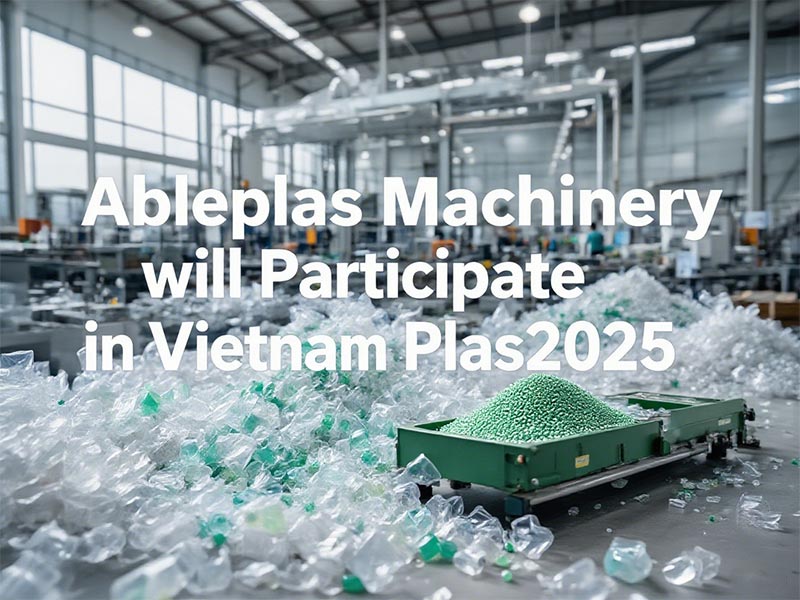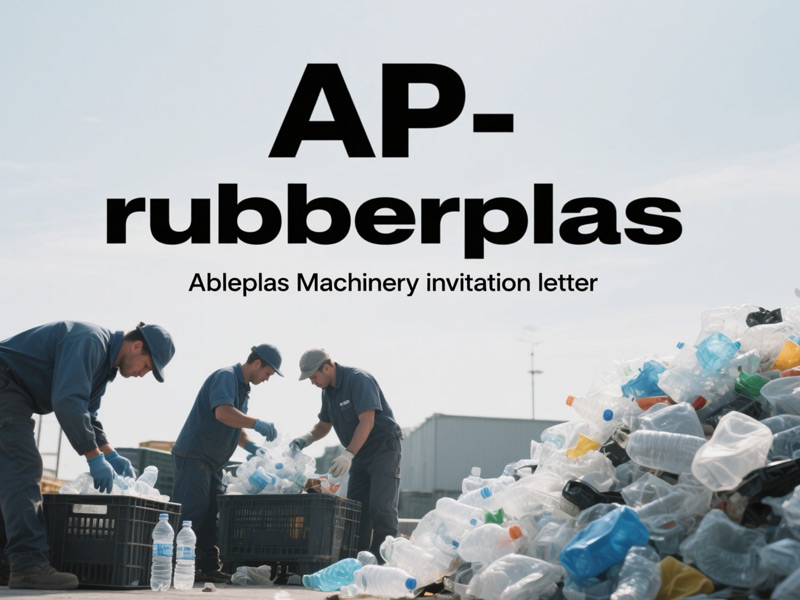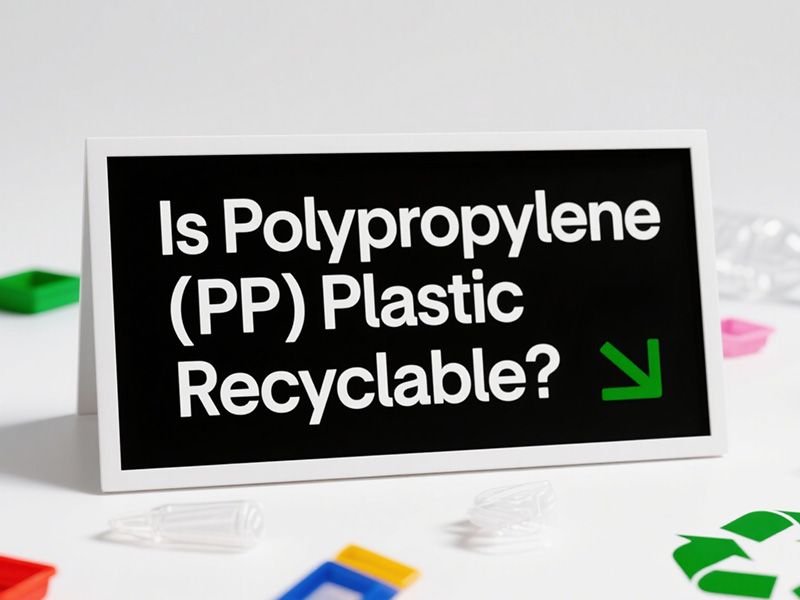Plastic recycling is now an extremely successful answer as plastic waste continues to reduce global sustainability goals. From packaging to automotive and construction, more and more companies, not only as an environmental work but also as a reasonable, affordable business plan, are utilizing recycled plastics in their manufacturing procedures. Rise in high-performance plastic recycling methods, transforming waste into valuable raw materials for reuse, is mostly driving this change.
We look into in this article which industries are most benefiting from plastic recycling, how they make use of recycled materials, and why investing in plastic recycling production facilities has turned out to be an intelligent long-term actions.
Keypoints
- While meeting natural targets, plastic recycling helps industries including packaging, automotive, and construction cut expenses.
- Advanced recycling technology turns waste into premiums products, hence recycled plastics fight with virgin plastics.
- Using recycled PET and HDPE for food-grade containers and films allows the packaging industry a lot as it benefits other people.
- Recycled plastics are employed in the building and automotive sectors as lightweight, strong components such as car parts and building materials.
- Buying plastic recycling machinery helps businesses to use sustainable factories while enhancing supply chain stability and efficiency.
Why Plastic Recycling Matters
Powerful technology support any successful industrial transition to sustainability; in the case of plastic recycling, it is advances in plastic recycling machinery that have made the change possible on a mass basis. These days, recycling systems go much beyond simple shredding. They utilize washing lines, friction separators, hot air dryers, and pelletizing extruders to handle film and rigid containers of plastic waste.
Modern plastic recycling equipment allow industries submit low-value waste into costly raw materials, capable of handling polluted, mixed, or bulky plastics. Industries can use recycled materials without sacrificing effectiveness as these machines make sure consistent output, material purity, and cost-effectiveness.
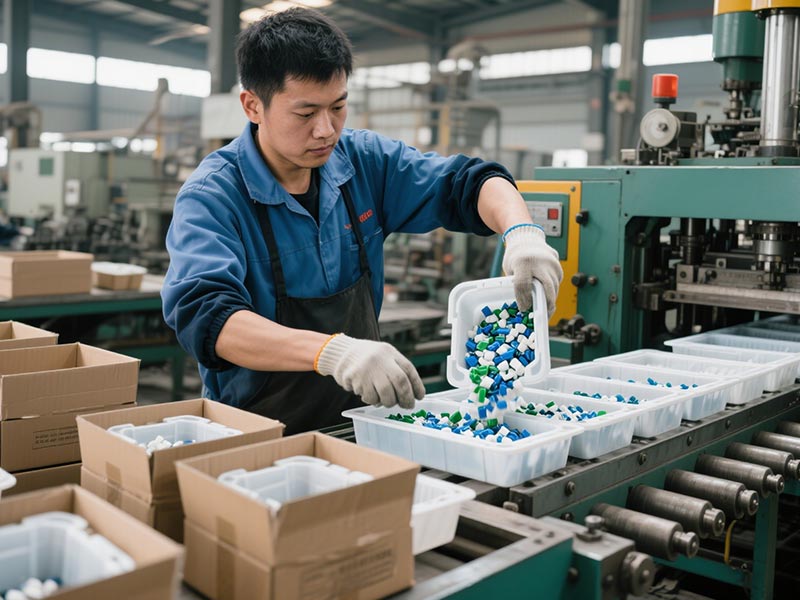
7 Sectors Benefiting from Plastic Recycling
1.Packaging Industry
The use of plastic and recycling lead to the packaging industry. Most recycled plastic—especially HDPE and recycled PET (rPET)—is used to produce:
Food trays, clamshell packaging, bottles and jars; shrink films and shopping bags
Useful plastic recycling tools let organizations change post-consumer plastic trash into food-grade parts. This eliminates their reliance on virgin plastic and helps them to meet regulatory and environmental objectives.
For producing clean, reusable plastic flakes and granules, a standard plastic recycling line for the packaging industry consists of shredders, washing tanks, hot air dryers, and pelletizers.
2.Automotive Industry
Lowering particles and boosting fuel economy are requirements set by car makers. One checked look at is lightweighting, or replacing solid, lightweight plastics for metal parts. Today, recycled PP, ABS, and PA are used thoroughly in automotive components including:
Interior cuts; Bumper systems; Cases for batteries; Wheel liners
Processed using plastic shredders, granulators, and pelletizing equipment, these recycled materials come from industrial or post-consumer sources. High-purity, high-performance materials are needed by the auto industry, and current plastic recycling activities can produce regularly, application-ready outputs.
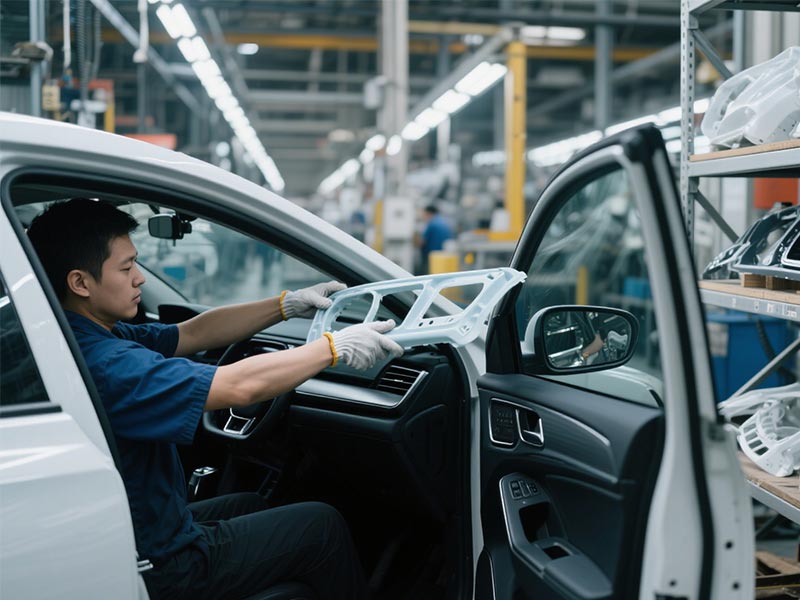
3.Construction Industry
Plastic recycling assists the construction business greatly since it has a desire for durable, affordable materials that have excellent resistance to adverse weather. Made from recycled plastics are:
● HDPE pipework systems, plastic lumber for fencing and decking
● Concrete formwork panels, roofing tiles, and covering boards
Using plastic recycling machines to turn firm developing waste—such as HDPE rolls or PP sheets—into premiums pellets provides builders access to reasonably priced raw materials with little effect on the natural world.
4.Consumer Goods & Electronics
From power tool casings to laundry baskets, everyday goods and electronics have become more and more on recycled plastics. Post-industrial and post-consumer rigid plastics—such as housings, buckets, and containers—are collected, cleaned, and modified using:
- Plastic crushers
- Hot systems for cleaning
- Pelletizers and centrifugal driers
This allows companies design environmentally friendly offerings without giving up quality. In addition, such as plastic recycling machinery into production cycles helps makers reduce waste and boost material efficiency.
5.Textile & Fashion Industry
In the textile industry, recycled PET (rPET) application is fast increasing. Plastic bottles collected from waste disposal systems are transformed into polyester fibers through use of plastic recycling lines made specifically for PET:
- PET bottle crushers
- Label and cap separators
- Systems for steam cleansing
- Unit for flake drying
Upholstery, footwear, accessories, and clothes are made from these threads. Top designers are now promising to using recycled plastics in all of their product lines, driven by both consumer demand and their social responsibility.
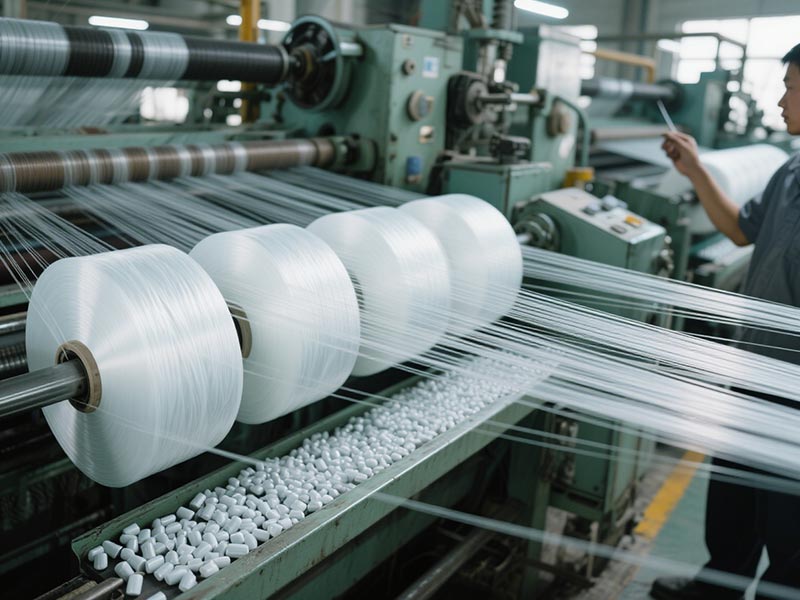
6.Agriculture & Horticulture
Mulch films, irrigation tubing, and plant trays belong to the plastic products that agriculture consumes in large quantities. Although these things typically breeze up as large waste, plastic shredders and washers allow for efficient recycling of them. Following that, treated flakes become:
- New irrigation pipelines
- Nurseries' containers
- Plastic boards and supports
Agricultural businesses can cut landfill trash and save raw material costs by including plastic recycling production processes on-site or collaborating with recycling centers.
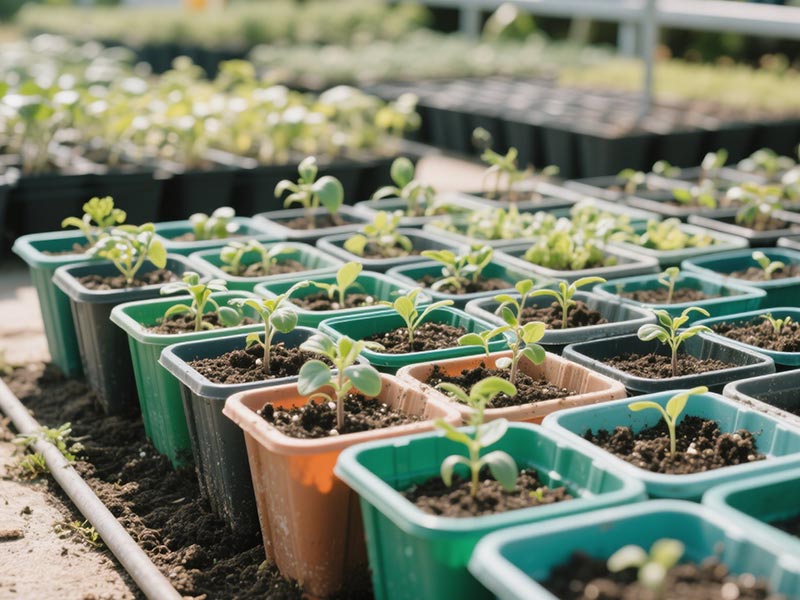
7.Retail & Furniture Industry
Recycled rigid plastics are utilized by furniture businesses as well as retailers to create store displays, office desks, chairs, and accent panels. Modern plastic recycling technologies allow the conversion of even vibrant or printed rigid plastic trash into useful pellets or sheets.
- Popular for molded furniture parts are recycled ABS and PP.
- Display and shelves systems use HDPE and PVC sheets.
Customers find these environmentally friendly designs appealing, and companies can save materials by using them instead of other people, thus decreasing their environmental impact.
Conclusion
From bottles to buildings, fashion to farming, plastic recycling is transforming the way companies get assets, manage trash, and create value. Businesses of all kinds can get cost-effective, application-ready recycled materials with the correct plastic recycling machinery, therefore encouraging a more circular economy.
Getting a plastic recycling production line is now a strategic choice instead of only an environmental behavior. Whether it is an agricultural producer, an auto manufacturer, or a packaging company, recycled plastic has apparent tangible benefits here to stay.
FAQS
1.Which industries use recycled plastics?
Recycled plastics are widely used in major industries such as packaging, automotive, construction, agriculture, consumer goods, and textiles. To reduce costs, meet environmental standards, and comply with laws and regulations, these companies use recycled materials.
2.Why do manufacturers consider plastic recycling so important?
Through plastic recycling, companies can reduce raw material costs, increase supply chain stability, and improve their environmental credentials.
3.Can recycled plastics replace virgin plastics?
In today's industrial applications, recycled plastics can reach the same standards as virgin plastics. Our excellent modern plastic recycling technology makes recycled PET, HDPE and PP widely used in packaging, automotive interiors, pipes and other fields.
4.What is the significance of plastic recycling in industry?
Converting waste plastics into usable raw materials requires plastics recycling equipment. Good shredders, washing systems, dryers and granulators ensure that the quality remains the same so that companies can venture into applying recycled plastics to their products.
5.How can businesses start using recycled plastics in their production?
Organizations may either purchase recycled plastic from suppliers or fund their own plastic recycling organizations for handling internal waste. Coping with a professional recycling machinery manufacturer ensures the right equipment for what they need.
